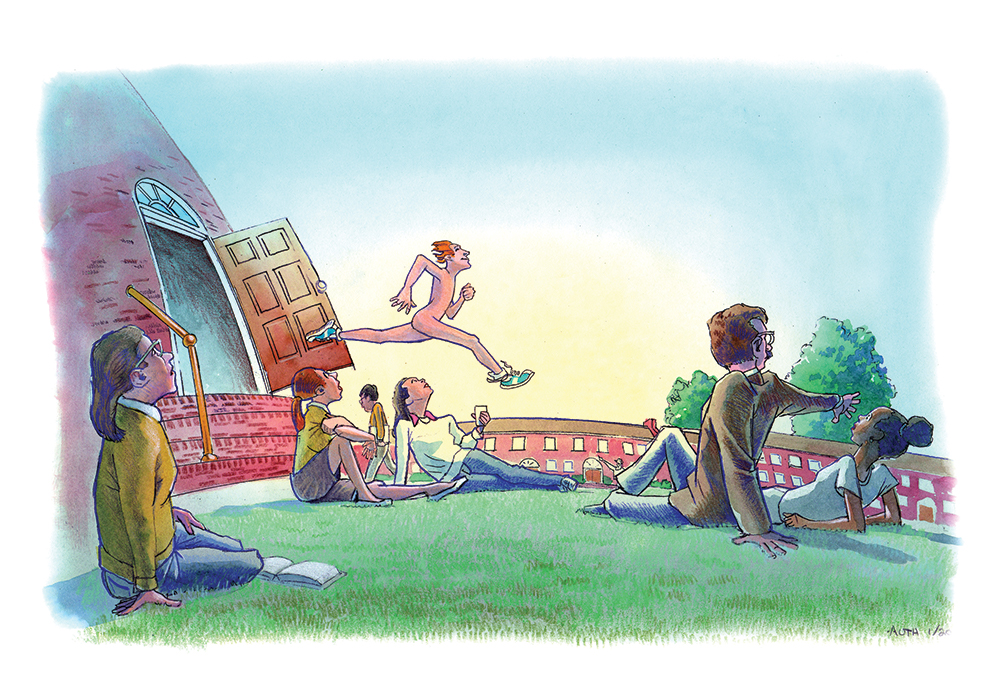
By Hardy Jackson
Come with me back to those thrilling days of yesteryear.
February 1974 to be exact.
That was when brave Southern boys and girls broke down the last barrier that stood between themselves and good taste and took off their clothes – in public.
Though it was still winter, the weather cleared, cold air from Canada stopped above the Ohio River, and the sun broke out to heat the ground. Deep Dixie is famous for February warm-up, daffodils pushing out, plum trees budding, a false spring that brightens spirits before March comes in like a lion.
It was one of those February days. And because winter had been particularly bleak, Southerners welcomed the warmth like a long-lost friend.
Some say it began at Auburn University. Some say at UGA. Other schools claimed the honor. The one thing the claimants had in common was that they were Southern.
The day was sunny and a few male students, full of themselves as young men are, stripped down and ran from one dorm to another. Seeing this as a challenge, other students followed suit without suits. Coeds, emboldened by the Women’s Rights Movement, joined their brothers in the buff.
Afternoon stretched into evening and as night fell more students came out, bared it all, and “streaked” across campus.
The next day university officials issued the order, “Wear clothes please, we’re Southern” – or something to that effect.
But it was too late. It was a movement. On university campuses throughout the Dixie students stripped down in the pre-spring rite.
Now, of course, most students did not take part in this. However, I firmly believe that even those who watched and cheered, fully clothed, supported the movement and wished they were bold enough to be in it.
Still, there was opposition. College administrators, of course, took a dim view of such doings. Young Republicans grumbled that it was just the sort of thing one would expect from students raised on Dr. Spock parenting and Lyndon Johnson’s Great Society. Campus religious organizations also took a dim view of the proceedings, though none ventured to say that their members weren’t involved. Others claimed to see the Lord’s displeasure in the cold front HE sent down a few days later to nip the buds and slow the sap HE had warmed the week before.
So it followed that by the time spring came for real, colleges were prepared with rules and penalties. It was over.
But consider this – they are still among us, those boys and girls of February ’74. In the years since then, they have taught our children, run our companies, sat in church with us, and worked to make our communities better places in which to live.
Good for them. And if you are one of them – good for you.




